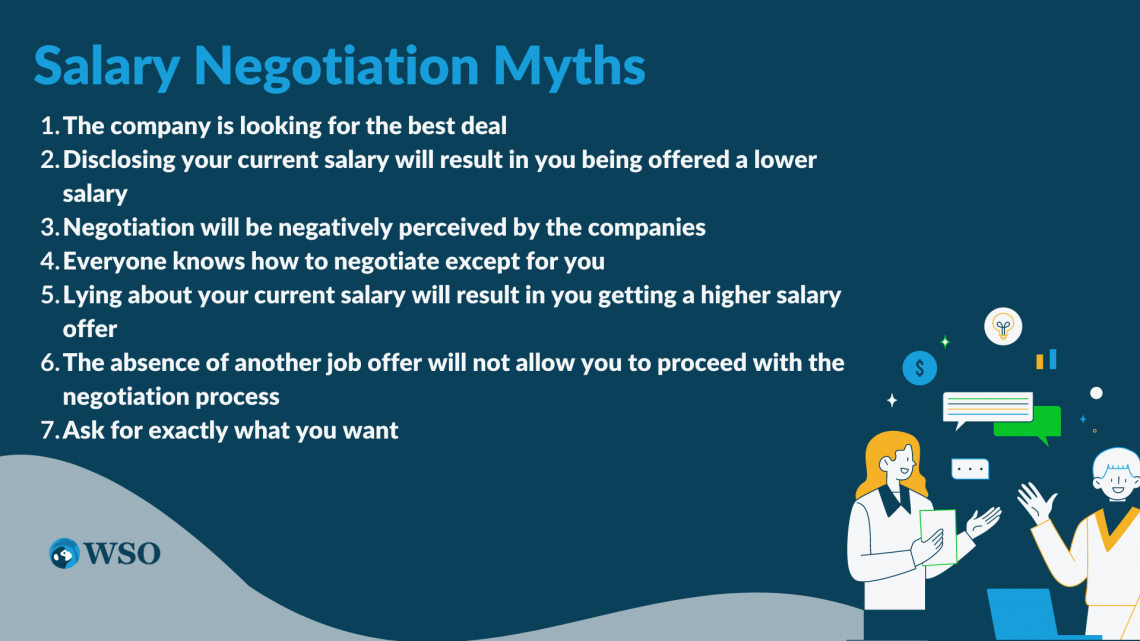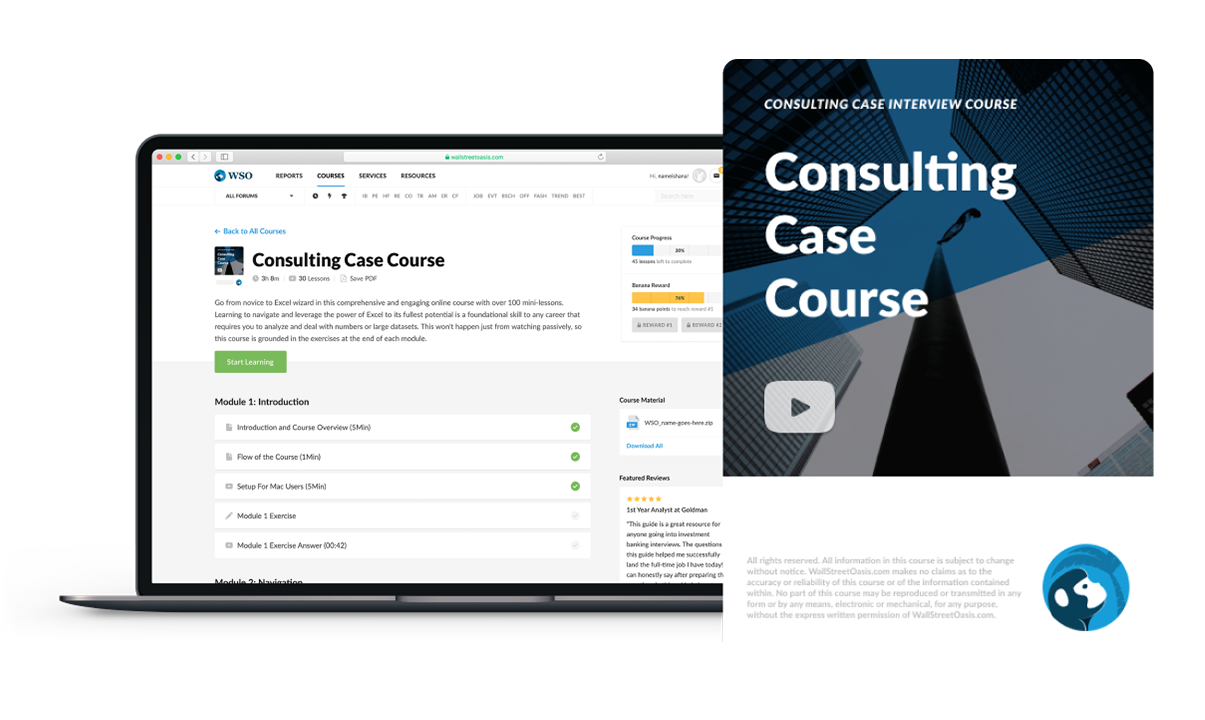
How to Negotiate Salary After a Job Offer
Entering the negotiation process can increase your life level and demonstrate to the potential employer the skills they might be looking for.
The job-hunting process could be one of the most stressful experiences we have to go through. The process usually involves a grueling interview designed to prove you are a worthy candidate. As a result, it is tempting to accept the first offer that comes your way. But, by doing so, you could miss out.

One of the universal mistakes people make after receiving a job offer is not negotiating compensation or other benefits.
On the one hand, it is perfectly understandable, as the fear of jeopardizing the job offer after the interview is real. On the other hand, however, it is worth considering that most employers expect a counteroffer from you.
Most recruiters or hiring managers will allow taking some time to assess the job offer. It is in one's best interest to take advantage of this opportunity. Use this time to assess the offer and prepare for the negotiation process.
Why should you negotiate, and when is the right time?
Entering the negotiation process can increase your life level and demonstrate to the potential employer the skills they might be looking for. However, remember timing plays an important role.
1. Why is it a good idea to negotiate
There are multiple reasons why you should negotiate the pay at the time of hiring, including:
- Money – you can earn on average $5,000 more per year when negotiating the pay at the time of hiring, Program on Negotiation
- Employer's expectation – 73% of employers expect a salary negotiation on an initial job offer, Human Resources Director
- High rate of success – the chance of losing a job offer when trying to negotiate is slim; on the contrary, you have an 85% chance to succeed in negotiation, CNBC.
- A chance to showcase the skills the company is looking for - by researching and communicating your needs, you can demonstrate the exact skills the company is looking for.

2. When is the right time to negotiate
Negotiating pay at the time of hiring is the easiest time to talk about the money and other benefits. It could be more difficult to get a raise or amend other terms of your employment once you are in. However, there are cases when it would be wise to refrain from negotiating.
Negotiate when:
- You have an offer letter from a potential employer – a written offer will provide you leverage as it demonstrates the company's desire to hire you. However, when the offer is verbal, the negotiation of pay should be placed on hold.
- You can substantiate the higher salary by the value you bring – negotiating pay is a professional situation. As such, argumentation for higher pay should be centered around the value you bring rather than the amount needed for your expenses.
- The job entails a lot of overtime work – some jobs with a significant number of overtime hours, base salary, and no clause for overtime compensation in the job offer. In this case, it is only fair that the pay reflects these circumstances.
Do not negotiate when:
- An offer letter has already been signed – it would be considered inappropriate to start the negotiation process after you have already signed an offer.
- The employer extended their best offer – if the potential employer specified that they had provided you with the best offer, they might not be open to negotiating any further.
- There is no reason to negotiate – when the offer is just right, or within the range dictated by the market, then the negotiation process might not be necessary. In other words, do not negotiate to negotiate.
What is negotiable in a job offer?
Before negotiating compensation and other benefits, it is important to understand what is typically negotiable and what may not be. Negotiable/non-negotiable elements can vary depending on the industry the company is operating in, the size of the company, and the company's life cycle.

There are typically five key elements of a total compensation package:
- Base salary: total annual salary
- Bonus pay: the amount paid on top of the annual base. Bonus pay can be non-discretionary (set amount is paid out if the predetermined conditions are met) or discretionary (bonus is paid out at the sole discretion of the employer based on the performance)
- Paid time off is the amount of fully paid time off
- Some mix of fringe benefits: health insurance, retirement savings, disability, or life insurance
- Stock/equity: non-cash compensation in the form of ownership interest in the company
Companies will usually offer some combination of these elements.
Most companies today have established policies relating to paid time off and bonus structures, making these components hard to negotiate.
One needs to concentrate on elements that are considered more flexible:
- Base salary
- Stock/equity
In addition, some negotiating points may not be included in a pay structure specified in the job offer. These negotiation points include:
- Sign-on bonus – one-time bonus paid out upon joining the company
- Flexible work arrangements – more working days from home or different working hours could be negotiated to allow you to save time and money on commuting to the office.
- Relocation assistance – one-time payment to help you with relocation expenses that might arise as a result of your accepting the job offer
- Other (continuing education allowance, free lunches, gym reimbursements, company transportation, sabbatical leave, maternity/paternity leave, paid sick days, etc.)
How to negotiate a salary
The following tips will guide you in negotiation discussions, which should be carried out once you assess the job offer, identify points that you want to improve and determine that it will be appropriate to negotiate.

1. Do the research
One of the most pivotal parts of the pay negotiation process is the research work you do. The job offer should only be accepted with an understanding of the market. Some of the questions to ask yourself at this stage would be:
- How much do people in your desired position, location, and industry get paid?
- How is your experience measured against a typical candidate or job requirements?
Multiple online resources will help you get the idea, including WSO Company Database. In addition, you can reach out to people working in the desired field to get insight information via conducting informational interviews, for example.
2. Consider compensation as a whole
Before entering a negotiation, you need to understand clearly:
- What is the acceptable pay range for you – when setting up a range, think about your lowest point, midpoint, and high point. However, when conveying the number to the employer during the negotiation process, aim for a slightly higher number than your goal.
- What other benefits would you like to get from an employer – if the employer cannot provide the salary you want, they might be able to offer other forms of compensation.
It is worth asking yourself whether some benefits compensate for the lower base salary.
3. Know your value
During the negotiation process, you need to be able to communicate why you deserve more by highlighting the value you bring to the company.
It will be helpful to put together a few points before you contact the employer. When doing so, think about the results you have achieved in previous roles, years of experience, skills, and certifications obtained.
4. Be prepared to answer your current or most recent salary questions.
The level of your current or most recent salary might come up during the interview or negation process, as it can indicate how low you are willing to go. You need to consider a couple of things when disclosing this information.
- If the pay is/was lower than the one you are aiming for with the new position – think about the things you have done that could be used as an argument for the range you desire for the new position (study courses taken, conferences attended, etc.).
- When disclosing the current or most recent pay range, consider quantifying and including other benefits in the amounts.
You must take the time to check whether your current or most recent employer restricts the release of such information to third parties.
5. Be prepared to answer other tough questions.
Recruiters or hiring managers will likely ask other important questions to determine your motivations. These questions could be intimidating, so it is important to think through your answers beforehand. Here are some of the questions you can expect, Indeed:
- Are we your top choice?
- If we come up in salary, will you accept the position immediately?
- Do you have any other offers?
6. Practice your delivery
Practicing negotiation with a family member or a trusted friend is a good idea before you speak with a recruiter or hiring manager. You can gain confidence by understanding how you are perceived when delivering your arguments.
Remember, the more confident you sound, the more confident the employer will consider your request.
7. Schedule a time to discuss
Once you are prepared to have a conversation, reach out to the recruiter or hiring manager to set up a time. While it is acceptable to negotiate over email, it is advisable to follow a different route.
Negotiating over the phone will allow you to have a back-and-forth conversation, avoid miscommunication, and express gratitude.
8. Know when to withdraw
Prolonged negotiation may frustrate the parties involved. If the company cannot meet your pay or other requirements after a few rounds of discussions, politely decline the offer and focus on finding opportunities that better match your expectations.
Things to avoid during the negotiation process and negotiation myths
Some things will significantly decrease your chances of achieving the desired result during the discussions with the recruiter or hiring manager. Unfortunately, these things can also result in a withdrawal of a proposal by the potential employer, so keep them in mind before entering the negotiation process.
In addition, do not let some negotiation myths stop you from entering the negotiation process altogether.
1. What to avoid in a negotiation
Failure to enter the negotiation process or a misstep during the negotiation process could cause you the missed opportunity of getting a desired compensation package or even the job altogether.

Some of the most common mistakes people make during the negotiation process include the following:
- Being unprepared
- Focusing only on pay
- Making it personal - always keep in mind that this is a professional conversation
- Coming across as entitled or inflexible - the key here is to avoid appearing argumentative during the whole process
- Having too many rounds of counterpoints - if you request specific terms and the company includes them in the amended job offer, it will be frustrating for the employer if you counteroffer again.
- Being unrealistic
2. Salary negotiation myths
There are multiple myths surrounding the salary negotiation process, some of which are outlined below. Use these to help you enter the process with more confidence.

Myth 1. The company is looking for the best deal
Companies do a lot of research to establish ranges for any specific position. But, in the end, companies want to make you the best offer to attract and retain you.
Myth 2. Disclosing your current salary will result in you being offered a lower salary
If you are prepared to answer questions about your current or most recent salary, you should be able to make a case for a higher salary based on your value.
Myth 3. The companies will negatively perceive negotiation
Companies want you for a reason and want to make you the best offer they can. They will want to know if they have missed the mark.
Myth 4. Everyone knows how to negotiate except for you
Studies show that many people feel they need to improve at negotiating.
Myth 5. Lying about your current salary will result in you getting a higher salary offer
One of the most dangerous myths out there. Many employers verify salary history as part of your new hire paperwork. Therefore, you risk being caught in a lie at the start of your cooperation.
Myth 6. The absence of another job offer will not allow you to proceed with the negotiation process
Having an alternative offer provides you with more bargaining power. However, you can still negotiate without having one.
Myth 7. Ask for exactly what you want
The negotiation process is a two-way street. The company will likely counteroffer. Therefore, give yourself some room and start by asking for more than you want.
- Money, employer expectation, a high rate of success, and a chance to showcase the skills the company is looking for are some of the reasons to negotiate pay or an overall compensation package.
- Know when to enter the negotiation process and when to withdraw, and timing is key.
- Do the research, know your value, and be ready to communicate why you deserve better pay or an overall compensation package.
- Failure to prepare could cause you the missed opportunity of getting a desired compensation package or even the job altogether.
- Act professionally throughout the whole process.
- Feel free to decline a job offer if you are unsatisfied with the final pay or the overall compensation package.

Everything You Need To Break into the Top Consulting Firms
Land at an Elite Consulting Firm with the Most Comprehensive Case Interview Prep Course in the World.
Researched and authored by Kseniia Tokarieva | LinkedIn
Free Resources
To continue learning and advancing your career, check out these additional helpful WSO resources:


or Want to Sign up with your social account?